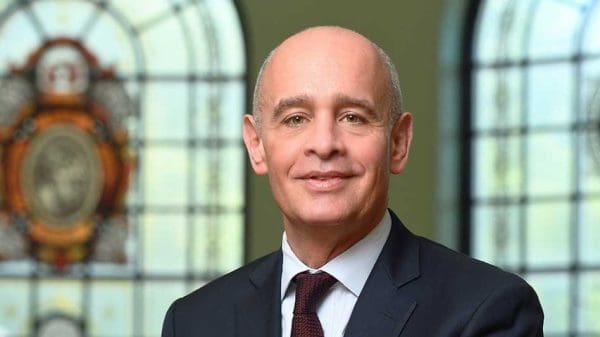
Watching or reading the news today can at times be a study in frustration. War. Climate disasters. Violence. Inflation. Extreme partisan politics. I often find myself walking a fine line between staying in tune with the world around me and also remembering—in the interest of self-care—to take brief respites from the frantic news cycle.
It can seem overwhelming at times, but then I realize that many of our faculty at the Krieger School are on the front lines of researching and examining today’s troubling issues. It gives me great hope to know that not only are our scientists and scholars trying to make the world a better, more equitable, and more livable place; they are also teaching our next generation of leaders how to take those ideals and methods to the next level.
Key Research
Take Professor Ben Zaitchik, for example, in our Department of Earth and Planetary Sciences. Ben and his team recently received a $25 million grant from the Department of Energy to improve climate modeling in Baltimore City. Their project examines the interlinked challenges of aging infrastructure, increased heat and flood risk, and inequitable burdens of air and water pollution common to many mid-sized industrial cities in the U.S.
The research of sociologist Meredith Greif is demonstrating how current inflation and increasing housing costs are exacerbating homelessness. She recently wrote a book Collateral Damages, which studies how local laws affect private landlords and whether tenants are being adequately protected.
Martha S. Jones, Society of Black Alumni Presidential Professor of History, has taken the lead on a university-wide project called Hard Histories, which examines the role racism and discrimination have played at Johns Hopkins. Combining research, teaching, public engagement, and the creative arts, the Hopkins project, under Martha’s steady guidance, explores how racism has been permitted to persist as part of our structure.
Meanwhile, in the William H. Miller III Department of Physics and Astronomy, more than 10 principal investigators are leading research teams that work directly with the James Webb Space Telescope (JWST). Last December, the JWST was launched on a journey 1 million miles from Earth, and in July the first batch of never-before-seen images of the universe were released. Read more about this astounding feat on page 18.
Lilliana Mason, SNF Agora Institute Associate Professor and a member of our Department of Political Science, is examining how American politics has become so divided and even violent, with an ultimate aim of confronting threats to democracy head-on, to create a more inclusive politics.
Fertile Ground
Those are just a few examples of what Krieger School faculty are exploring.
It is heartening to me—and I hope to you—to know that the Krieger School is such fertile ground for the innovative research that addresses humanity’s most pressing and challenging issues. The people doing this work and those who support it are part of a broad network within the Johns Hopkins community who wake up every morning and roll up their sleeves to embark on making the world better. I find that deeply inspiring, and I’m prouder than ever to be part of the Hopkins family.


